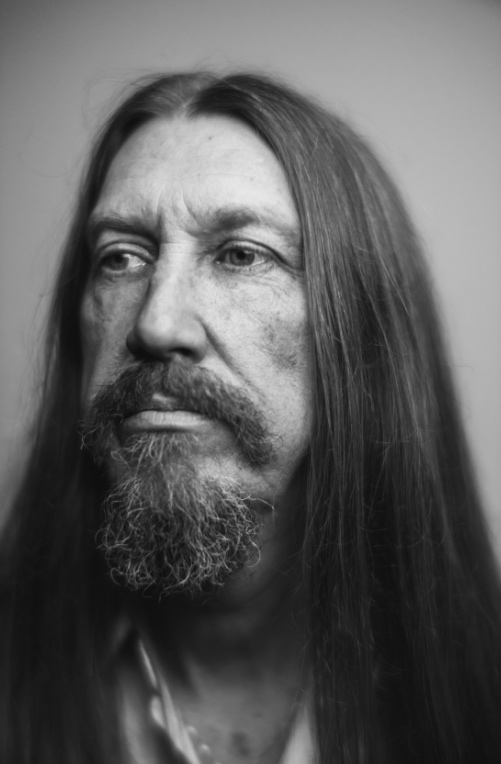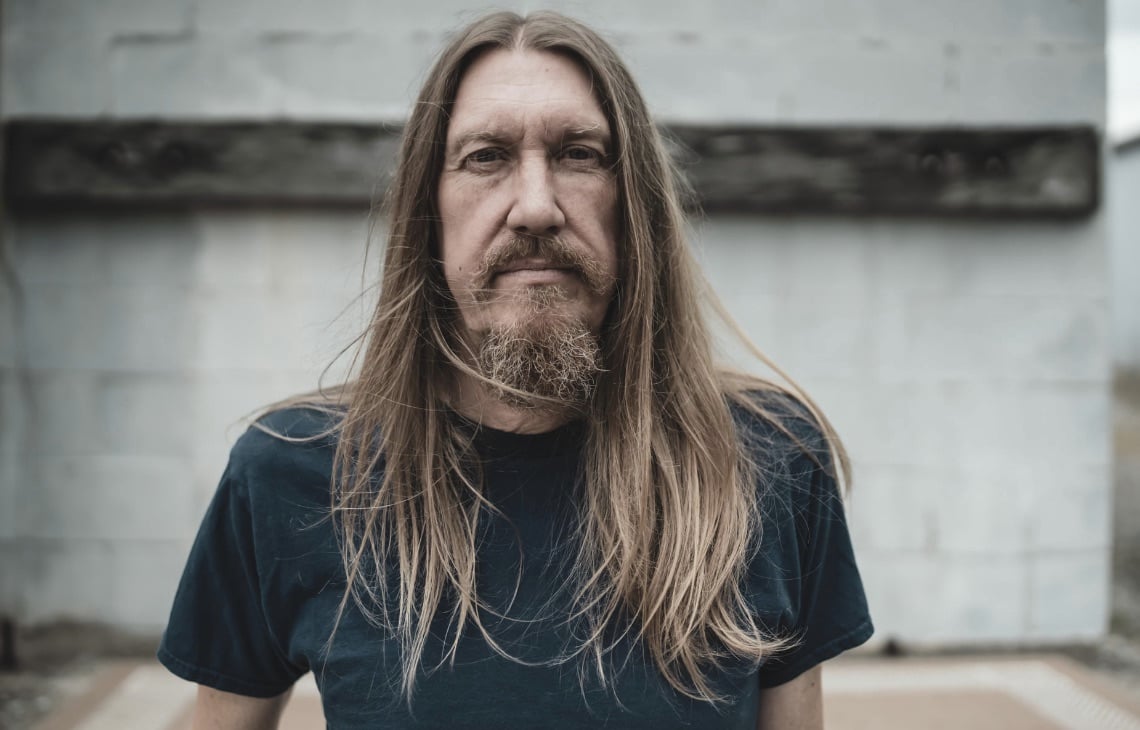In a lifetime of playing music, Grammy-nominated musician Oliver Wood has learned a few things. Like a traveler coming home with tales from the road to share, he returns to Atlanta Thursday for a concert at Terminal West to reconnect with old friends, revisit a few older tunes and share songs from his recent solo album.
His trio for the show includes bassist Ted Pecchio and drummer Jano Rix.
Wood’s latest album, Always Smilin’, is equal parts nostalgia, perplexity and prayer, fittingly accompanied to music that, for the most part, recalls old-school folk and blues elevated with a little bit of gospel. The distinctive timbres of a variety of instruments serve as auxiliary for the principal emotive: a voice that, like a weathered front porch, bends and creaks with the footprints of time as it welcomes you in like a long lost friend.

Wood’s musical story begins in a home filled by the music his father loved and the word images of his poet mother. He spent his formative years as a musician in Atlanta. “I have so many friends there and memories and you know, all my mentors really were there — people that gave me my first gigs or encouraged me,” said Wood. “There was a really nice community that I ended up being a part of which was, loosely, the blues and roots community in Atlanta.”
The Northside Tavern became Wood’s home away from home, and he played with blues legend Tinsley Ellis, among others. Ellis became a trusted mentor who was instrumental in the trajectory of Wood’s career. “He encouraged me to sing a song every night of the gigs and made me feel like I could do it,” said Wood. “And then, not only that, he taught me what happens on the road and what it’s like to be a musician. I’m very grateful to him. He and I are still very close.”
Ellis offered his perspective of the collaboration: “Oliver Wood is one of the kindest and most talented human beings on Earth. And this shines through in his amazingly soulful music.”
Along with Chris Long and Greg Baba, Wood then formed his own band, King Johnson, which also became a fixture at the Northside Tavern. The band included horn players Adam Mewherter, John Longo and, later, Marcus James Henderson. King Johnson released several albums of high-energy roots-and-blues music.
His next stint was teaming with his brother, Chris Wood (of Medeski, Martin & Wood) and drummer Rix to form the Wood Brothers band, which received a Grammy nomination in the Best Americana category for its album titled One Drop of Truth. The band put out another album, Kingdom in My Mind, and enjoyed a busy touring and recording schedule.
Then Covid-19 happened. While stuck at home, Wood turned a challenge into an opportunity and decided to try something new. To call the resulting album a “solo venture” doesn’t do justice to its many talented contributors, including Susan Tedeschi, whose backing vocals add an extra layer of soulful texture on Get the Blues. He is also joined by John Medeski and Phil Madeira, both of whom furnish keyboard work that adds jazzy blues undertones throughout many of the songs.
While the precept of the album is consistent, the instrumental effects were carefully chosen to support the message. “You want to add color,” Wood explained. “It’s like a painting, and you just want to add some developments that don’t take away from the main image. So the main image might be the voice and the lyrics, and everything else is sort of to embellish that and not get in the way — not distract.”
Nowhere is this more apparent than in Unbearable Heart. Wood chose a single acoustic guitar and an early Delta blues style to support lyrics that are a simple acknowledgement of how hard it is to keep a tender heart in a hard world. In Molasses, the organ and pedal steel take their time to create a sound effect reminiscent of the ways we meander through life by finding sweetness where we can. No other instruments would have worked quite as well.

Not everyone would hear his songs the same way, and Wood believes that space needs to be left for the listener’s interpretation. “There’s a mystical part that we don’t quite ever understand,” he said. “Whatever the artist intended, whatever it is, emotionally, will come through, even if maybe you don’t understand something specifically. There’s something compelling about just being made to feel things, even if they’re not necessarily happy.”
He explained that a musician’s interpretation is not static either. “I think the beauty of it is you can create your own story,” Wood said. “And I think even as an artist, our story that we get from our own work changes and evolves over time, too. So I always feel like that’s some of the best stuff. It just has that sort of ambiguity or abstraction, and you make what you want out of it.”
Wood echoes what a lot of songwriters have said: Songs often just magically “appear,” and the task comes from capturing them before they vanish. “There was a time before, you know, thousands of years ago, that artists gave all the credit to the muse, or to God, and they never took credit for their work,” he said. “The artist is just a vessel. There are so many parallels and intersections between art and music and spirituality, and all of these kinds of things are because a lot of the same attitudes apply to both.”
The key for Wood is to be in the moment and receptive to inspiration.
One reason that Wood enjoys playing is that sharing his music with a live audience helps them to be in the moment as well. “When you listen, you’re not just listening with your ears,” he said. “Your whole body feels the bass, and the bass drums are kind of going into your gut.”
Mindfully acknowledging the “great mystery” seems the key not only to the creative process but to hearing Wood’s music with the same sacredness that he puts into making it. And, although he is referring to songwriting, he might well be espousing a philosophy on life and listening. “It was probably by accident, but nothing’s by accident, right?,” he said. “You just open yourself up to it.”
::
Shannon Marie Tovey is a freelance music journalist and educator.

